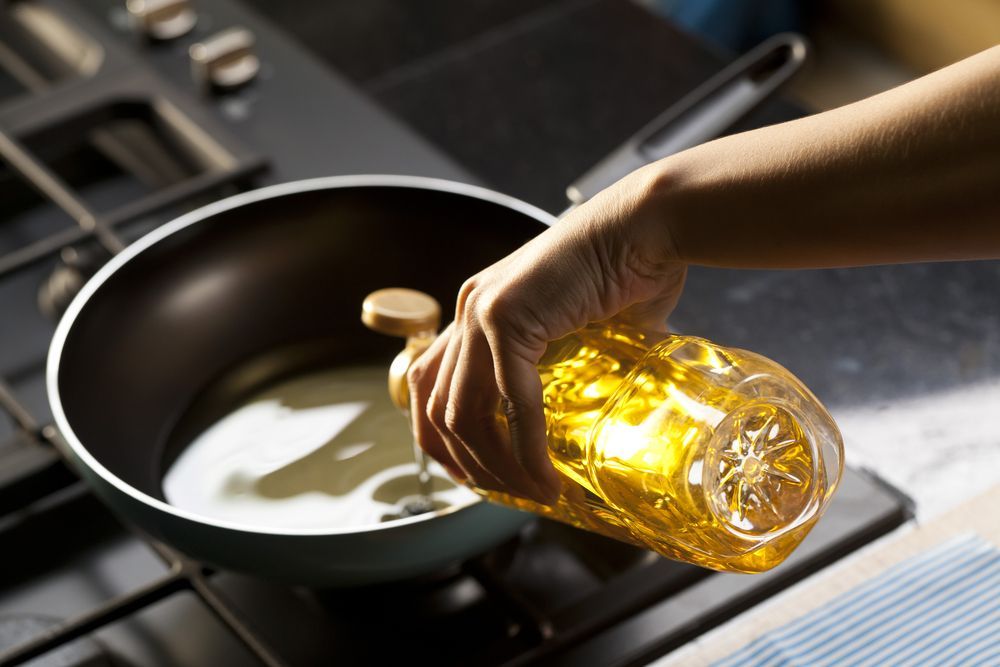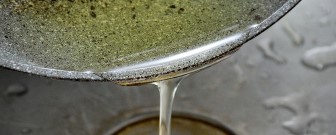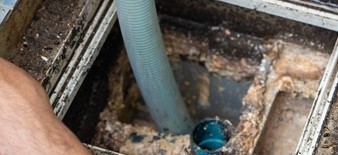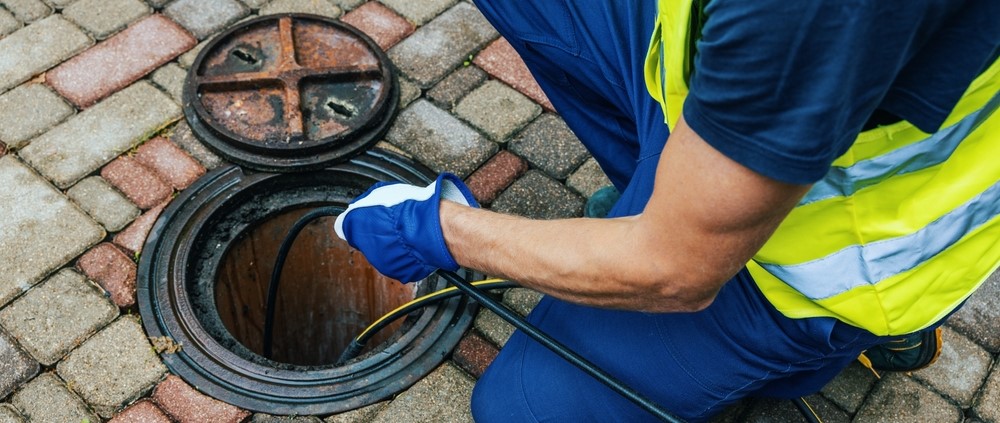
Why Can't You Pour Oil Down the Drain?
Wednesday 4th October, 2023You might think it's harmless to pour a bit of oil down the drain, but the reality is far from it. Doing so can have serious implications for your home's plumbing and the sewer system. The oil can solidify and create blockages in your pipes, leading to slow drainage and even backups. These blockages often require expensive repairs and can even lead to sewage overflow in extreme cases.
Beyond the plumbing issues, pouring oil down the drain has severe environmental consequences. The oil can make its way into local waterways, contaminating them and harming aquatic life. The cleanup process for such contamination is both costly and time-consuming.
In the following blog post, we explore why you shouldn't dispose of fats, cooking oils and grease by pouring them down the drain, explaining what you should do instead, and why it is so important.
What happens when you pour cooking oil down the drain?
When you pour cooking oil down the drain, you're setting off a chain of events that can lead to significant problems, both in your home's plumbing and your local infrastructure.
Initially, the cooking oil may flow freely down the drain, appearing to be as harmless as any other liquid. However, as it moves through the cooler pipes, the oil starts to solidify. This is especially true for animal fats and thicker oils, which solidify at higher temperatures.

As the oil travels further, it encounters other substances commonly found in drains, such as wet wipes, sanitary products, food particles and hair. The oil then acts as a binding agent, causing these elements to stick together, creating a thick, sticky mass that becomes lodged against the walls of the pipes.

Over time, these masses accumulate and form blockages that restrict the flow of water. You may first notice this as slower drainage in your sink or bathtub. If left untreated, these blockages can lead to more severe plumbing issues, such as backups or even burst pipes.
What are fatbergs?
A fatberg is a large, solid mass that forms in a sewer system, primarily composed of congealed fat, oils and grease - collectively known as FOG - when these substances combine with other items in the system that should not be there.
Fatbergs can grow to astonishing sizes. In the UK, some of the most notorious fatbergs have been the size of double-decker buses or even longer. In 2017, a fatberg weighing 130 tonnes and stretching more than 250 metres was discovered in Whitechapel, London. To put it into perspective: that's longer than two football pitches!
Fatbergs start small but grow over time as more FOG and debris flow through the system. The fatberg continues to expand until it obstructs the sewer line, causing blockages, overflows and even structural damage to the pipes.

In the UK, it's estimated that millions of pounds are spent annually to remove these monstrous blockages. This involves not just the physical removal of the giant mass, but also the repair of any damaged infrastructure. The environmental cost is equally concerning. While the fatberg is lodged in the drain, it will lead to sewer systems getting backed up and overflowing into the streets, or leaking into natural watercourses. The removal process can lead to the release of harmful gases and can also result in further contamination of waterways if not managed carefully.
The formation of fatbergs is a deceptively simple process facilitated by the things many people thoughtlessly dispose of down their drains. Understanding what fatbergs are and how they form is the first step in combatting them, allowing councils and governments to spend more money on other areas of the infrastructure that need it, rather than this avoidable problem.
How to dispose of oils responsibly
Disposing of oils responsibly is not just a matter of good housekeeping; it's a civic responsibility that has broader implications for our communities and the environment. Here's how you can do your part:
Cooking oils
- Cool and contain: allow the used cooking oil to cool down completely. Once it's cool, pour it into a sealable container. Make sure the container is sturdy and leak-proof to prevent any spills.
- Reuse when possible: sometimes, you can reuse cooking oil, like vegetable and sunflower oil, which can be filtered. However, this isn't advisable for oils that have been used to cook meat or fish due to the risk of bacterial contamination.
- Bin it: when it comes time to dispose of cooking oil, scrape the cooled, congealed oil into the bin.
Engine oils
- Use a drain pan: when changing engine oil, use a drain pan to catch the old oil. Make sure to wear gloves and use other protective equipment to avoid skin contact.
- Store safely: pour the used engine oil into a container with a screw-top lid. Make sure the container is clearly labelled and stored away from children and pets.
- Recycling centres: used engine oil can often be recycled. Many recycling centres have dedicated facilities for hazardous waste, including engine oils.
- Garage services: some automotive service centres accept used engine oil for recycling. Check with your local garage to see if they offer this service.
Call a professional
By contacting a professional, you can have a blockage easily removed and learn how to take measures to avoid contributing to plumbing issues.
By taking these steps, you're not just preventing potential issues in your own home; you're contributing to a broader effort to protect our environment and infrastructure. Responsible oil disposal is a simple yet effective way to make a significant positive impact.

More can be done
Unblocktober is an initiative with the goal of raising awareness about these issues to more people. You can help us to spread the word by signing up and pledging your support. For more information on what we do, visit our home page, or sign up today.
